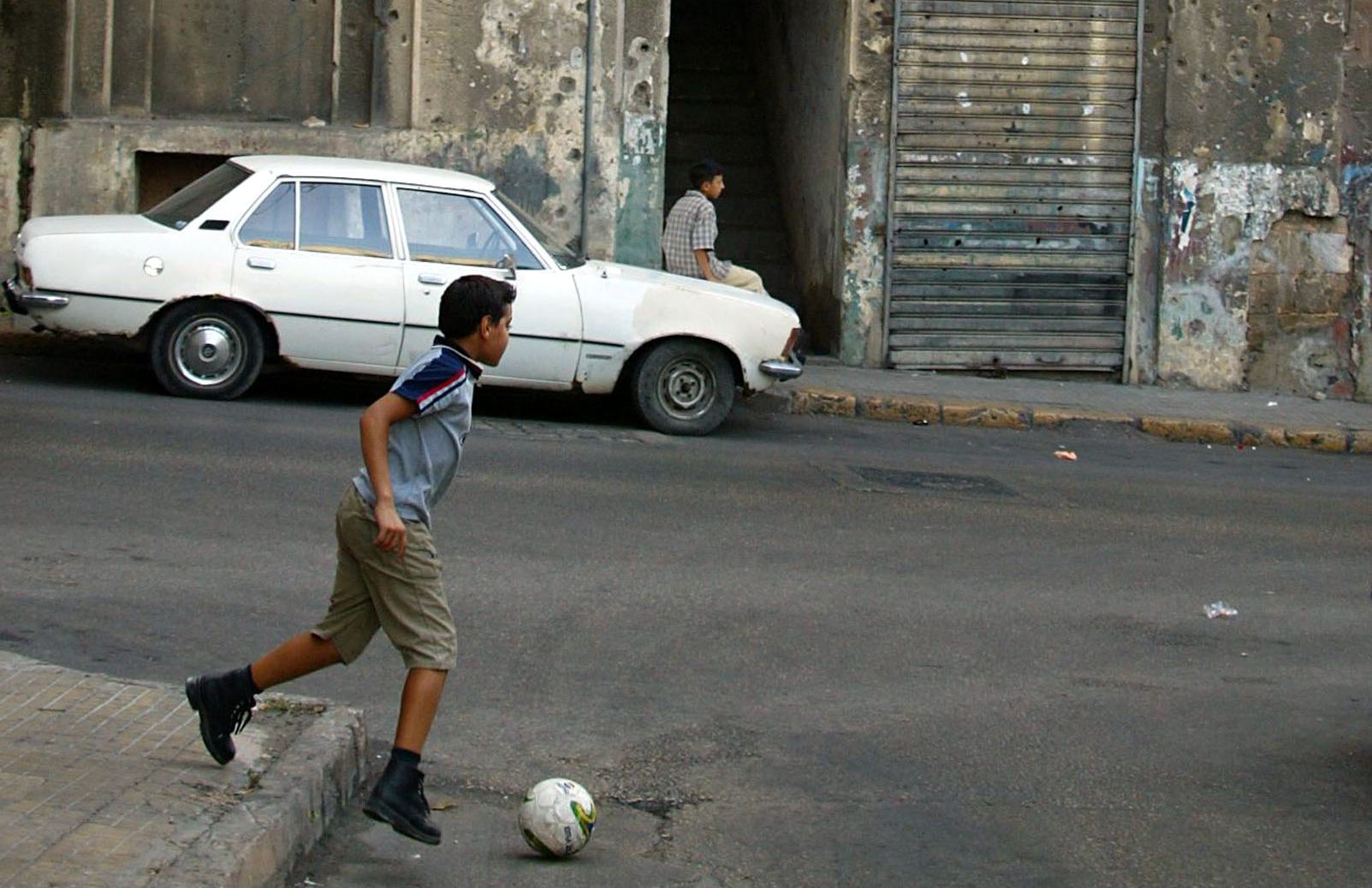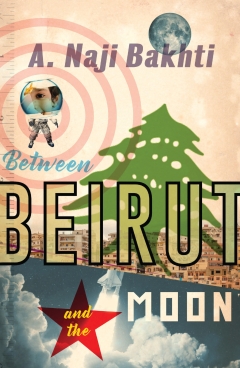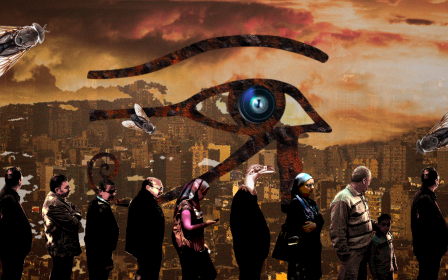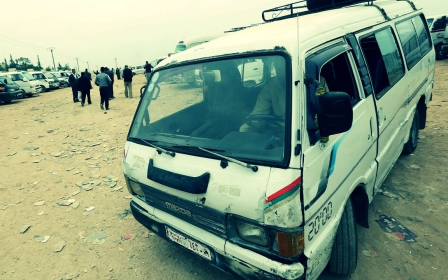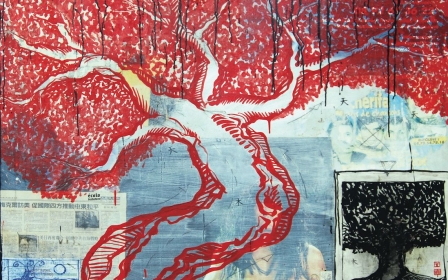'Between Beirut and the Moon': The story of an unfulfilled odyssey
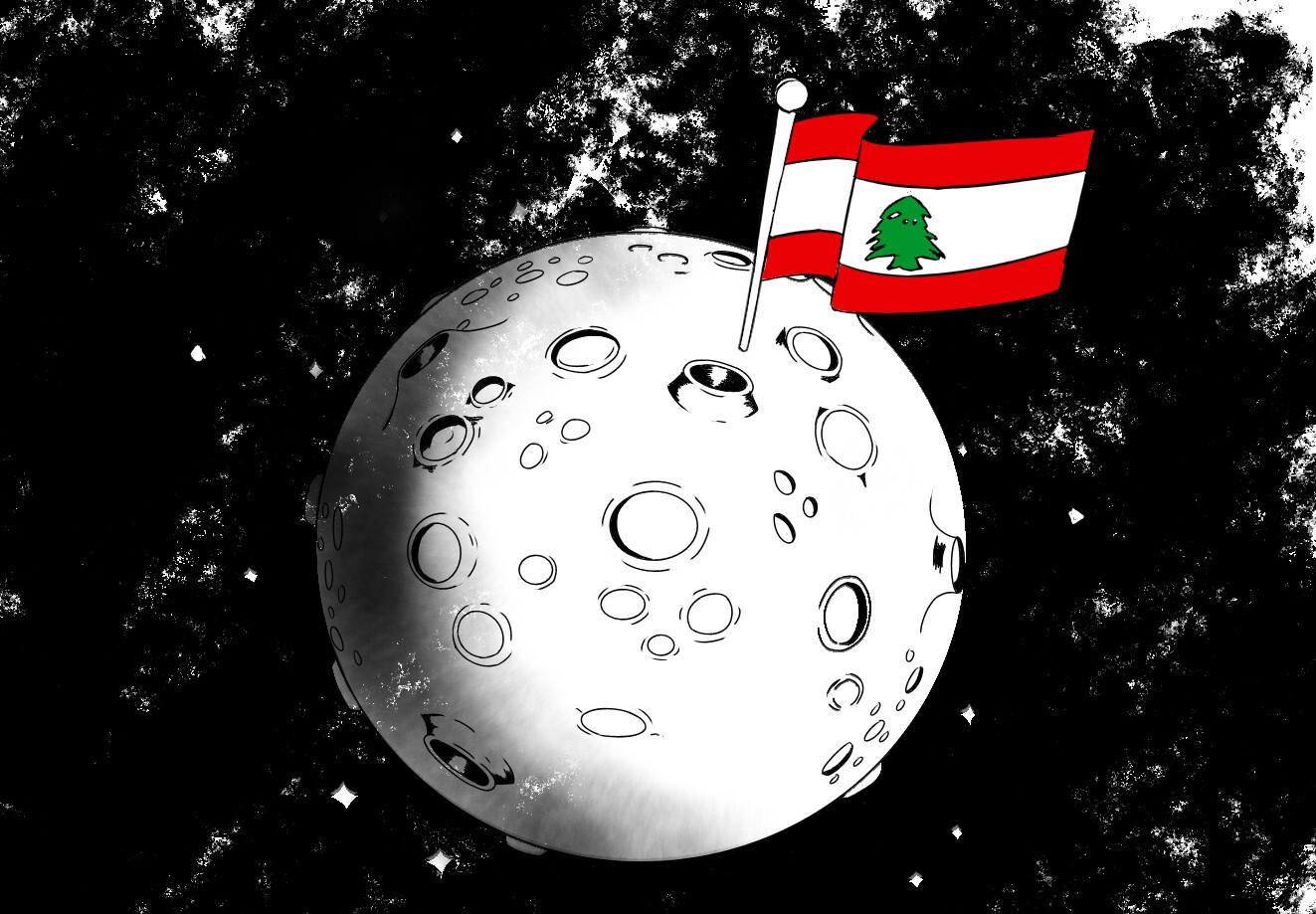
Flanked by war-torn buildings and “half-baked attempts at skyscrapers”, there is a sliver of Mediterranean skyline that Adam, the young protagonist in Between Beirut and the Moon, can glimpse from his balcony.
As the sky darkens and nets with stars during the all too frequent power cuts, he meditates on this stark vista, while listening to the distant echoes of afternoon prayers and the mournful laments of the door-to-door zucchini salesman.
Adam yearns to be like his heroes - Neil Armstrong, Yuri Gagarin, Buzz Aldrin - and explore brave new worlds, the space beyond that which he occupies, but who has ever heard of an Arab on the moon? Christened the Arab Armstrong and teased mercilessly by his friends and family, who joke he is fated to travel in a rocket called Camel One, Adam finds little support for his nascent ambition.
We meet Adam as a young teenager, living in a cramped apartment in an ageing building in Ras Beirut, just off Hamra Street, with his book-hoarding, journalist father, nicotine-addicted mother and his feisty, pigtailed little sister.
In post-civil war Beirut, danger is still omnipresent, and the family regularly huddle in a tiny, claustrophobic bathroom, wedged against a porcelain sink, listening to the sounds of bombs going off in the distance.
As Adam states: “It was the war of ’67 or ’82 or ’00 or ’06 and Israel and Lebanon were at it again. I, like my father before me and his father before him, were crouched inside the safest room in the house beside my family and hoping that no RPG rocket or bomb would land on my home.”
The book follows Adam as he comes of age within the confines of Beirut at the tail end of the civil war that tore the city apart. This 15-year multifaceted war, fuelled by both internal and external powers, lasted from 1975 to 1990, and led to an estimated 150,000 deaths and an exodus of almost one million people.
The fighting was characterised by sectarian violence, which deeply affected the civilian population.
Despite this, Adam’s story is a joyful odyssey that catalogues the normal escapades of youth - playground japes, stern principals, first sexual encounters - against the backdrop of a shattered city, struggling to heal after decades of turmoil, while chronicling Adam’s own struggle to understand his country’s turbulent history. A past which, whether he likes it or not, encroaches on his own future.
Lounging on Ramlet al-Bayda (White Sands beach), “the only public sandy shore left in Beirut, courtesy of the warlords who ran the country after the end of the civil war”, with his friend Basil, flicking away used needles in order to sunbathe, the boys ruminate on which desert in the Middle East is more like the moon: Saudi Arabia’s or Dubai’s? Adam closes his eyes, and his French neighbour, a UN worker, recently killed in a bombing, comes to mind:
“When I closed my eyes, I did not see Armstrong’s moon landing or Sagan’s Cosmos… I saw Saint Exupery’s Sahara Desert with The Little Prince. I saw Monsieur Mermier on asteroid B-612. I saw him watering the rose, cleaning out the volcanoes, pulling up the baobabs. I saw him holding the prince’s sheep in a box and watching forty-four sunsets in one day.”
Caught between conflicts
Darkly comic in tone, the novel doesn’t shy away from the truth about the constant threat of conflict, with tensions between Hezbollah and Israel regularly bringing the country to the brink of war. Nor does it shy away from the inherent trauma and the dire pressures this places on the family unit, and the wider community.
Bakhti, 29, employs humour to great effect. In one scene, Adam recounts a story when an RPG rocket landed in a corner of the living room in the 80s, tearing through the ceiling as it did so. His father hired the local carpenter Mehdi to patch up the hole, “the only man available and willing at the time”.
Bakhti sketches characters with great flair, and the novel brims with a rich cast of eccentrics
Mehdi kept promising to fix it properly but never returned, as Adam muses: “Mehdi disappeared during the war. He was kidnapped, or killed, or immigrated to Montreal with his wife and son. My father would say that he spent half his life waiting for my mother, and the other half waiting for Mehdi.”
Despite the frightening and alienating aspects of war, ordinary lives continue with all their foibles. So Adam and his friends frequent the Shipman’s Crew pub as minors and drink the local 961 beer, while laughing at the barman’s attempts to enforce his coaster rule.
Meanwhile, back in their cramped apartment, his father’s many tomes become playthings for him and his sister, a distraction from the outside world: “I would stack the books on the floor over one another in such a way as to emulate a spaceship and pretend I was on my way to the moon. My sister would join in by spreading her little body across the floor and pretending to be a star with ponytails.”
Bakhti sketches characters with great flair, and the novel brims with a rich cast of eccentrics, from Adam’s cursing “Jesus-Muhammad-Christ” journalist father to his poetry teacher, the round, sinister, bespectacled Mr Malik with his strange compass-style gait, one leg swinging around the other as he walks.
Even inanimate objects are given personalities and his father’s attachment to an ageing, white, second-hand American car, the “Oldsmobile”, or "white American" as christened by neighbours, is a source of pride.
The vehicle is too wide to be parked near their apartment and ends up being a casualty of a bombing “riddled with bullets and littered with broken glass”. It becomes a landmark, as it is too large to be towed, and home to a brown street cat that his father adores and feeds Cadbury Fruit and Nut.
The concept of space is a recurring motif throughout the novel. Adam is a product of an interfaith marriage: his mother Christian, his father Muslim. Tensions within the extended family are evident, reflecting the stigma that can sometimes exist around mixed faith marriages in Lebanon and the wider Arab world.
At school, Adam navigates the space between these two religious identities, and, given his outsider status, is able to spot things he considers absurdities within religion in general.
So when a friend’s pious Muslim mother explains to Adam’s mother that when she instructed the boys to worship together, she noticed Adam’s prayer steps were off and could recommend a teacher that could rectify, Adam’s mother rages at him afterwards: “The next time that woman makes you pray in her house, you do the steps to the fucking Macarena.”
Adam’s feelings of frustration and powerlessness at his situation of growing up in a country fractured by war and religious strife are distilled in a playground incident when he wreaks revenge on a slap-happy friend who claimed that Christians should “turn the other cheek” if they are hit because that is what their religion expects of them:
“I imagined that he was an alien life form which I had come across in one of my journeys to outer space, whose sole aim was to spread a disease that would divide the entire human race into tiny little groups of men and women which fought endlessly amongst themselves and achieved progress only sporadically.”
'Death or immigration'
The choppy narration style employed throughout the novel is reminiscent of the strong Lebanese oral storytelling tradition that Adam’s father espouses, and Bakhti reproduces it here to great effect in order to reflect a shattered city in the process of recovering from civil war.
Conflict ripples throughout the generations and the reader pieces Adam’s story together as he lurches from incident to incident with unwavering momentum, steering a path from a 14-year-old youth getting into scrapes with his classmates to a young adult finding his feet in a post-war city.
Adam’s longing for space travel is of course symptomatic of a deeper malaise and, as the dark shadows of Lebanon’s religious strife and difficult politics encroach, the tight bonds of his family unit are pushed to breaking point. In an article for An-Nahar, a Lebanese newspaper, Adam’s father writes poignantly:
“…I curse the country that presented our children with two alternatives: death or immigration, and instructed them to pick between the two. I curse the country that forced its parents to send their children to outer space, or worse Europe, and wave silently from afar…”
An adult Adam on London’s Westminster Bridge on a cold November night, in the arms of his German girlfriend, surmises he can never fully escape the gravitational pull of home, which is, in the end, so very much part of him.
Facts can tell you so much about a country, but humour can reveal its soul.
To his credit, Bakhti has crafted a warm, funny, charming tale that gives a deep insight into Lebanese culture and history, and the dilemmas facing the country’s young.
Between Beirut and the Moon, by A Naji Bakhti, is available from Influx Press in June 2020
Middle East Eye delivers independent and unrivalled coverage and analysis of the Middle East, North Africa and beyond. To learn more about republishing this content and the associated fees, please fill out this form. More about MEE can be found here.


